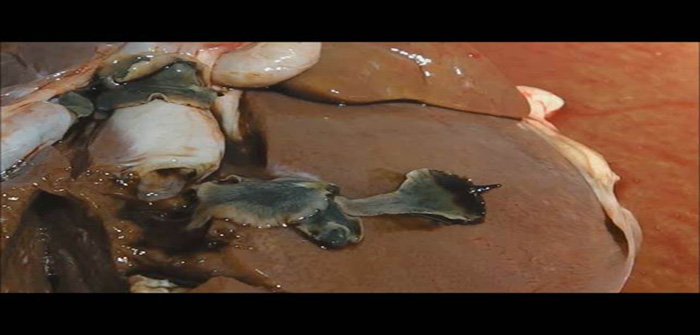There has been a lot of focus on the re-categorisation of some of the wormers at present but SQPs should also be giving advice now on early fluke treatments due to the likelihood of infections over large parts of the UK.
Both Sally Harmer, an SQP and consultant, and the Moredun Research Institute in Scotland highlighted the recently issued fluke warning from NADIS, which said that fluke was present in some area of the UK following weather conditions over 2017.
Last winter was relatively mild which means that fluke stages, both within their mud snail intermediate hosts and on the ground, have a better chance of surviving with very little cold weather which meant fluke continued to circulate. This was followed by a mixed spring and wet summer especially in Scotland and the West of the UK.
Philip Skuce from the Moredun Research Institute in Scotland, said: “Based on the weather patterns we’ve seen this year, we would anticipate large regional differences in fluke risk across the UK this season, so farmers need to be on their guard in the wetter parts of the country, as ever. A sensible option is to test for fluke.
“With sheep, you can blood test via your vet, test dung samples for the presence of fluke eggs or request a coproantigen test. The problem with testing for eggs is that there are only eggs when you have adult fluke present.
“There can be a large number of immatures within the liver but no eggs in the dung. With the coproantigen test, this will pick up fluke down to approximately eight weeks of age. These tests are not very expensive and are available from a number of laboratories.”
Ms Harmer added: “Testing has the added advantage of ensuring that a treatment is not done unnecessarily.
“Autumn is a good time to test if triclabendazole, the drug of choice for killing immature fluke, is working correctly. A post dose test to check its effectiveness could be useful but results require a degree of interpretation so veterinary advice is essential.”
In summary, Ms Harmer said that SQPs should:
- Check if there is a fluke issue on the farm and prescribe an appropriate flukicide if needed;
- Check the flukicide used is working;
- Take care with combination products – are they really needed?; and
- Make sure all animals are given an effective quarantine dose when arriving on farm.
Picture: Adult fluke escaping from the bile ducts of an infected sheep at post mortem.


